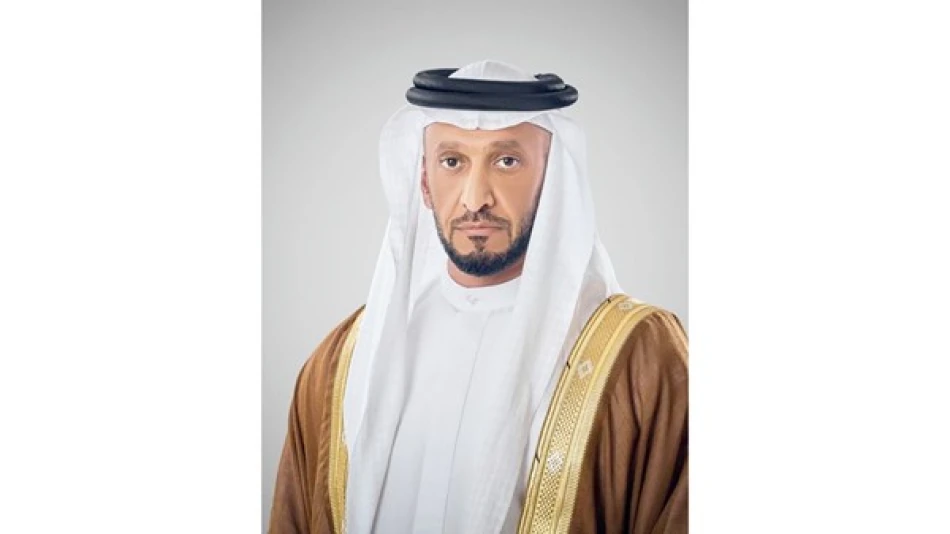
UAE Media Sector Soars in First Half of 2025 with Exceptional Growth Figures
UAE Positions Itself as Global Media Powerhouse Through Strategic Regulatory Overhaul
The UAE is accelerating its transformation into a dominant global media hub, with new licensing data revealing unprecedented growth in digital content creation and international partnerships. The Emirates Media Council's latest performance metrics show over 2,500 media licenses issued in just six months, signaling the country's aggressive push to capture a larger share of the Middle East's $8 billion media market while positioning itself as a regional alternative to traditional centers like London and Los Angeles.
Explosive Growth in Digital Media Licensing
The numbers tell a compelling story of rapid expansion. During the first half of 2025, the Emirates Media Council issued 2,562 licenses and permits, including 2,152 general media licenses and 235 digital media licenses specifically for social media platforms. This represents a significant shift toward accommodating the creator economy and digital-first content strategies that have become central to modern media consumption.
The surge in social media licensing is particularly noteworthy, as it reflects the UAE's recognition that traditional broadcasting models are giving way to influencer-driven and platform-native content. This regulatory foresight positions the Emirates ahead of many Western jurisdictions still grappling with how to regulate digital content creators.
Cinema Sector Demonstrates Market Maturity
The entertainment sector's robust performance further validates the UAE's media ambitions. With 611 film approvals generating over 6 million ticket sales and revenues exceeding AED 309 million ($84 million), the Emirates is proving it can support both content creation and consumption at scale. The approval of 131 electronic games for local distribution also signals the country's embrace of the rapidly growing gaming industry.
Strategic Regulatory Framework Targets Global Competition
Abdullah bin Mohammed Al Hamed, Chairman of the Emirates Media Council, emphasized that expanding global partnerships in the media sector represents a "national priority" for the coming phase. This language suggests the UAE views media dominance as integral to its broader economic diversification strategy, similar to how it approached financial services and logistics in previous decades.
The Council's new legislative framework aims to enhance governance while creating a flexible regulatory environment that supports sector growth and keeps pace with accelerating digital transformations. This approach mirrors successful strategies employed by Singapore and Ireland in attracting multinational corporations through regulatory clarity and business-friendly policies.
AI-Powered Platform Signals Tech Integration
Perhaps most significantly, the UAE is developing an integrated digital platform in partnership with Presight, leveraging artificial intelligence and advanced analytics to streamline licensing management and content monitoring. This technological approach to media regulation could become a model for other jurisdictions struggling with the complexity of modern content oversight.
Regional Competition and Global Implications
The UAE's media push comes as Saudi Arabia invests heavily in entertainment through its Vision 2030 program, creating intense regional competition for content creators and media companies. However, the Emirates' established infrastructure, international connectivity, and regulatory sophistication give it distinct advantages in attracting global media operations seeking Middle Eastern headquarters.
For international media companies, the UAE's streamlined licensing process and embrace of digital platforms represent an attractive alternative to more restrictive regulatory environments. The country's strategic location between Europe, Asia, and Africa, combined with its growing domestic market of over 10 million residents, creates compelling economics for media investment.
Market Outlook and Investment Implications
The publishing sector's handling of over 514,000 titles and issuance of 35,000 circulation permits demonstrates the breadth of the UAE's media ecosystem beyond just digital content. This comprehensive approach suggests sustainable, long-term growth rather than a narrow focus on trending sectors.
The careful balance between openness and content standards—evidenced by the blocking of 32 titles that violated community values—indicates the UAE is pursuing managed liberalization rather than unrestricted expansion. This measured approach likely reassures both international partners and domestic stakeholders about the sustainability of the country's media ambitions.
As global media companies increasingly seek diversified geographic exposure and governments worldwide tighten content regulations, the UAE's combination of business-friendly policies, technological infrastructure, and strategic location positions it to capture a disproportionate share of future media investment and production activity in the region.
Most Viewed News

 Layla Al Mansoori
Layla Al Mansoori






